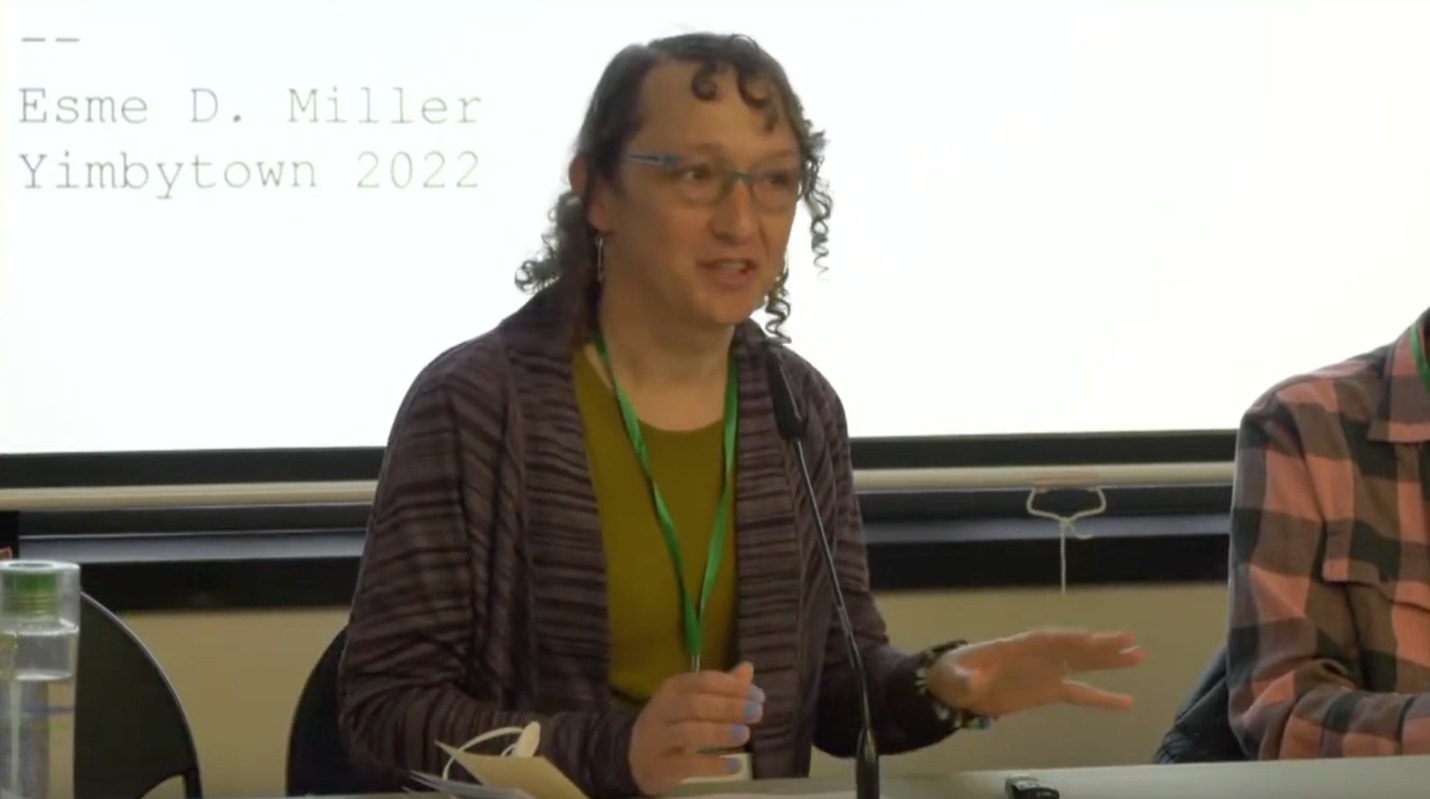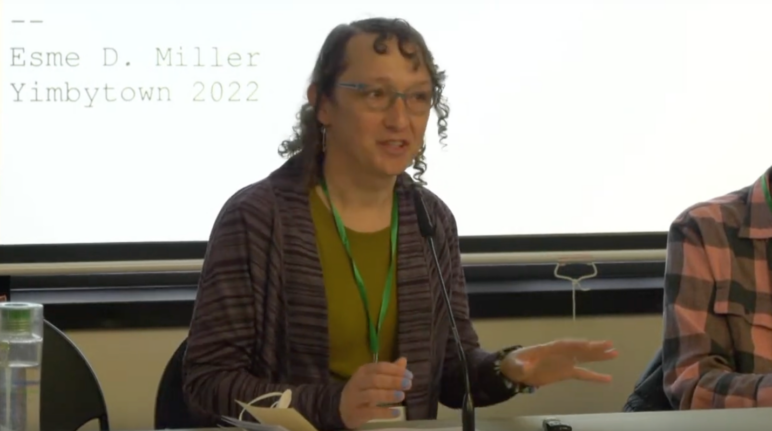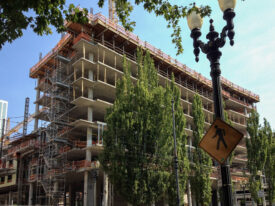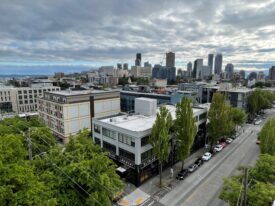The conversation shared below was part of the YIMBYtown 2022 conference, cohosted by Sightline Institute and Portland: Neighbors Welcome.*
Cities have historically been—and continue to be—sanctuaries for the queer community. Yet as sexuality and gender roles have expanded and evolved, our housing paradigms have not, and the LGBTQ population suffers from higher rates of housing precarity on every metric. How can zoning codes and housing policy more broadly make a community more inclusive, welcoming, and affordable? Panelists acknowledge the ways that the norms of “single-family homes” mirror the norms of heteronormativity and discuss the need for further overlap and collaboration between LGBTQ advocates and those for abundant and affordable housing to consider the realities of how people move between places.
- Esme D. Miller, a doctoral candidate in history at Rutgers University, shares her research on body, gender, and sexuality in early 20th-century logging camps and mill towns in the Pacific Northwest. She presents stark parallels between that era—when heterosexual households were largely a class privilege and those who did not fit the mold of class, race, and sexuality were pushed out of sight—and today.
- Dan Reed, writer, urban planner, and community advocate, discusses the evolution of gayborhoods, particularly in Washington, DC, and how they’ve changed as cities gentrify and LGBTQ communities decamp to the suburbs, where there is more space but community members have to work harder to create the central gathering places more common in urban settings.
- Nancy Haque, Executive Director of Basic Rights Oregon and an executive team member of One Oregon, digs into the root causes of why the queer community is overrepresented in houseless communities and why we need community-specific housing. She emphasizes the need to think bigger and more broadly on what housing can be and that the LGBTQ community must be at the table to discuss their housing needs.
- Sarah Mirk, comics journalist, teacher, and author, moderates the session and the Q&A. Topics include the ideal housing types the panelists envision for the LGBTQ community, whether SROs are acceptable housing, and the need for housing organizations specifically for transgender people.
*YIMBYtown 2022 occurred April 11–13 in Portland, Oregon, the fourth annual gathering (after some COVID delays) of “Yes in My Back Yard” (YIMBY) community leaders, organizers, planners, policymakers, educators, and housing providers eager to share resources and strategies for building more affordable, sustainable, and equitable communities.









